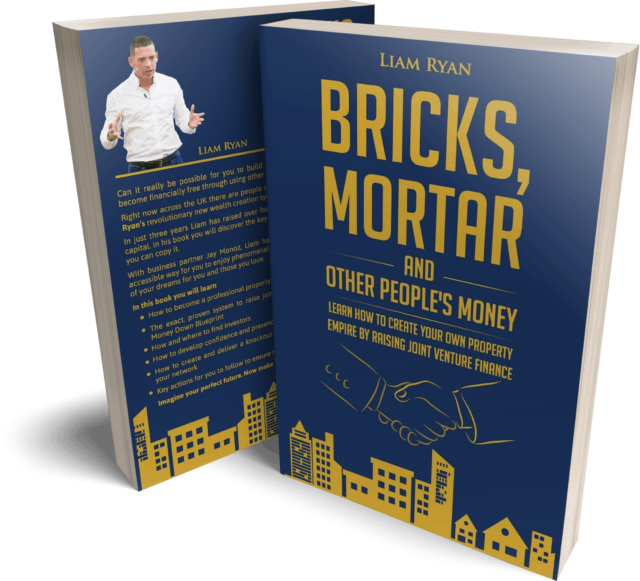FENSA Certificate: What Is It and Do You Need It To Sell?

Selling or buying a property involves a lot of paperwork before and during the conveyancing process. One such piece of paperwork is the FENSA certificate. If you have bought or sold a property before, you will have likely encountered FENSA and the FENSA register before, but what exactly is it? This blog is all about FENSA certificates, why they are important, and what to do if your property doesn’t appear to have one.
Table of Contents
Toggle- What is a FENSA Certificate?
- Why Do You Need a FENSA Certificate?
- How Do I Find My Property’s FENSA Certificate?
- What Happens if You Don’t Have a FENSA Certificate?
- Can I Sell My Property without a FENSA Certificate?
- Other Accreditation Bodies
What is a FENSA Certificate?
A FENSA certificate is evidence that a competent installer fitted the windows and doors on a property, the installation was registered with the local council and met building regulations at the time of installation. It also confirms that the windows and doors are designed to retain heat, improving the property’s energy efficiency. FENSA stands for Fenestration Self-Assessment Scheme, a regulatory body created by the UK government within the Competent Person Scheme that offers accreditation to builders who install windows and doors. Once an installation has been added to the FENSA register and a certificate issued, it stays in place until the windows and doors are replaced. Before commencing work, windows and door installers should already be registered with FENSA or another similar accreditation body.
Why Do You Need a FENSA Certificate?
A FENSA certificate, similar to an EICR certificate or gas safety certificate, provides proof of professional installation for windows and doors. It confirms that the installer complies with building regulations and registers the installation with the local authority. Since 2014, the certificate also includes an insured warranty. It is a legal requirement for all windows and doors installed from April 2002 to have a FENCA certificate or similar certification. When you sell a property, you will need to provide the FENSA certificate or other accreditation to the conveyancing solicitor to show that the windows and doors comply with building regulations.
How Do I Find My Property’s FENSA Certificate?
If you have had the windows and doors installed by a contractor, they should provide you with the FENSA certificate. If it was done before you owned the property, check with your conveyancers who should have received it when you purchased the property. If you don’t have it, you can check online with FENSA to find out if your property has a FENSA certificate. You can also download it from the FENSA website for a fee of £25.
What Happens if You Don’t Have a FENSA Certificate?
If no FENSA certificate can be found, then another type of accreditation could have been issued by another Competent Person Scheme (or CPS), such as TrustMark or CERTASS. All installations should be registered with the local council, so get in touch with them if you need more information. You should be able to download a similar certificate with the relevant CPS.
If you can’t find a certificate anywhere and the local authority has no record of your window and door installation, then it could be possible that they were installed by an unaccredited contractor. This can cause some problems when it comes to selling the property. Contact your local authority to find out if the windows and doors were inspected upon installation. If they weren’t inspected, then you will need a Retrospective Building Regulation Compliance Certificate. This can take some time and will also incur costs of around £300-400. Also, if the work is found to be non-compliant with building regulations, you will then have to pay for repair work, which can be quite aggravating and costly.
Can I Sell My Property without a FENSA Certificate?
Without a FENSA certificate or similar certificate from another accredited body, it can be incredibly hard to sell a property. It is illegal to install windows and doors without said certificate. Not having a FENSA certificate can mean many mortgage providers will not be willing to provide funds for any would-be buyers of said property and you will probably not get many offers. The lenders will be concerned that the property is not worth the asking price and that if the buyer defaults on the loan, the property will be hard to sell. Some larger property investment companies might be willing to buy a property with no FENSA certificate and absorb any potential costs themselves, but you will not get a good price. While it is expensive and time-consuming, I would advise seeking suitable accreditation from the local authority before trying to sell a property with no FENSA certificate.
FENSA indemnity insurance could provide another option in cases where no FENSA certificate or similar is available. This insurance covers the absence of compliance evidence with building regulations, providing a solution where certification is missing. Typically, it functions like other policies for lacking building regulations or planning permissions. The insurance covers risks such as loss of market value and expenses related to enforcement notices or proceedings issued by local authorities. However, it does not cover the cost of replacing defective windows or doors. To obtain a policy, you’ll need the property address, value, current and intended use, official property documents, details of the works completed, and any missing permissions or certifications.
While this insurance could be useful, remember it won’t cover the cost of any required repairs to the windows and doors. You also cannot take this insurance out if you have already told your local council about the issues relating to the installation.
You can save yourself a lot of time and hassle by keeping all relevant certificates and documents relating to your property safe and easily accessible, especially when getting ready to sell. You should have received these when you first purchased the property – if not, contact your conveyancing solicitors as soon as possible to chase them up.
You can learn all the ins and outs of the property investment world by joining me, Liam J Ryan, and other property investment gurus at a FREE Assets For Life property event – click here to find out more or sign up.
You May Also Be Interested In...

A Guide to Selling Your Buy-To-Let Property
Thinking of selling your buy-to-let? Learn how to time the market, manage tax and maximise

Planning Permission Loopholes You Should Know About
Discover UK planning permission loopholes, permitted development rights and when you can extend, convert or

How the Bank of England Base Rate Affects Your Buy-to-Let Mortgage
Learn what the Bank of England base rate is, how it’s set, and how changes
Featured Property Investment Events & Courses
The Property Deal Packaging Summit
The Property Millionaire Bootcamp
The Serviced Accommodation Bootcamp





